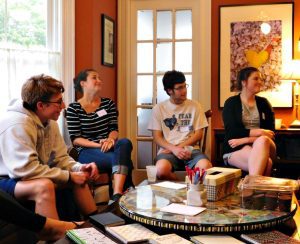
Teens talked openly with young adult TCR alumni about grief in college, grief on social media, and much more.
In June, we hosted a unique Teen Program event: a panel discussion providing teens a safe space to ask a group of five TCR alumni questions about their experiences coping with grief in adolescence and about the transitions into life as a young adult.
Each of the five young adults who participated were college-aged, and all five are alumni of our programs from their childhood and/or teenage years. The teens who attended were all of high school age.
The group got to know each other a bit during icebreakers, pairing up to share responses to amusing personal or theoretical questions. Each of the young adults then took a few minutes to share their grief story, how they managed adolescence, and the transition into college. Afterwards, the entire group—teens and young adults together—participated in an open discussion about their experiences.
A number of common themes emerged throughout the conversation. Teens talked about how experiencing the death has changed them as a friend and family member, managing tough days (like anniversaries and milestones), choosing how and what to share with peers, others reactions, the part that social media plays in grieving, and their hopes and anticipations for the future.
“I was impressed by the openness of the teens’ questions and by how thoughtful the young adult alumni were in sharing their answers,” said Christine Lambright, Youth & Community Outreach Coordinator. “The young adults prepared notes on their stories ahead of time and gave real consideration to what they would have wanted to know back when they were a teen.”
The teens and young adults were able to relate with each other on a deeply meaningful level. The young adults noted that it was not very long ago that they were in the teens’ shoes, and the teens acknowledged their anticipations for transitioning to college in the not-so-distant future.
“The young adults who came and spoke as part of our panel truly embody the concept of resilience,” said Colleen Shannon, Associate Program Director, Youth & Community Outreach. “Each individual spoke not only about his or her loss and the challenges they faced, but also about how they navigated these challenges and how their experiences of loss contributed to the people they are today. Panelists connected their experiences of loss at a young age with an increase in their level of compassion for others who are now struggling and a greater appreciation for life and for the people who are in their lives now.”
There is no doubt that both the teen participants and our alumni benefited from meeting each other and taking part in this generous dialogue about life and grief.




